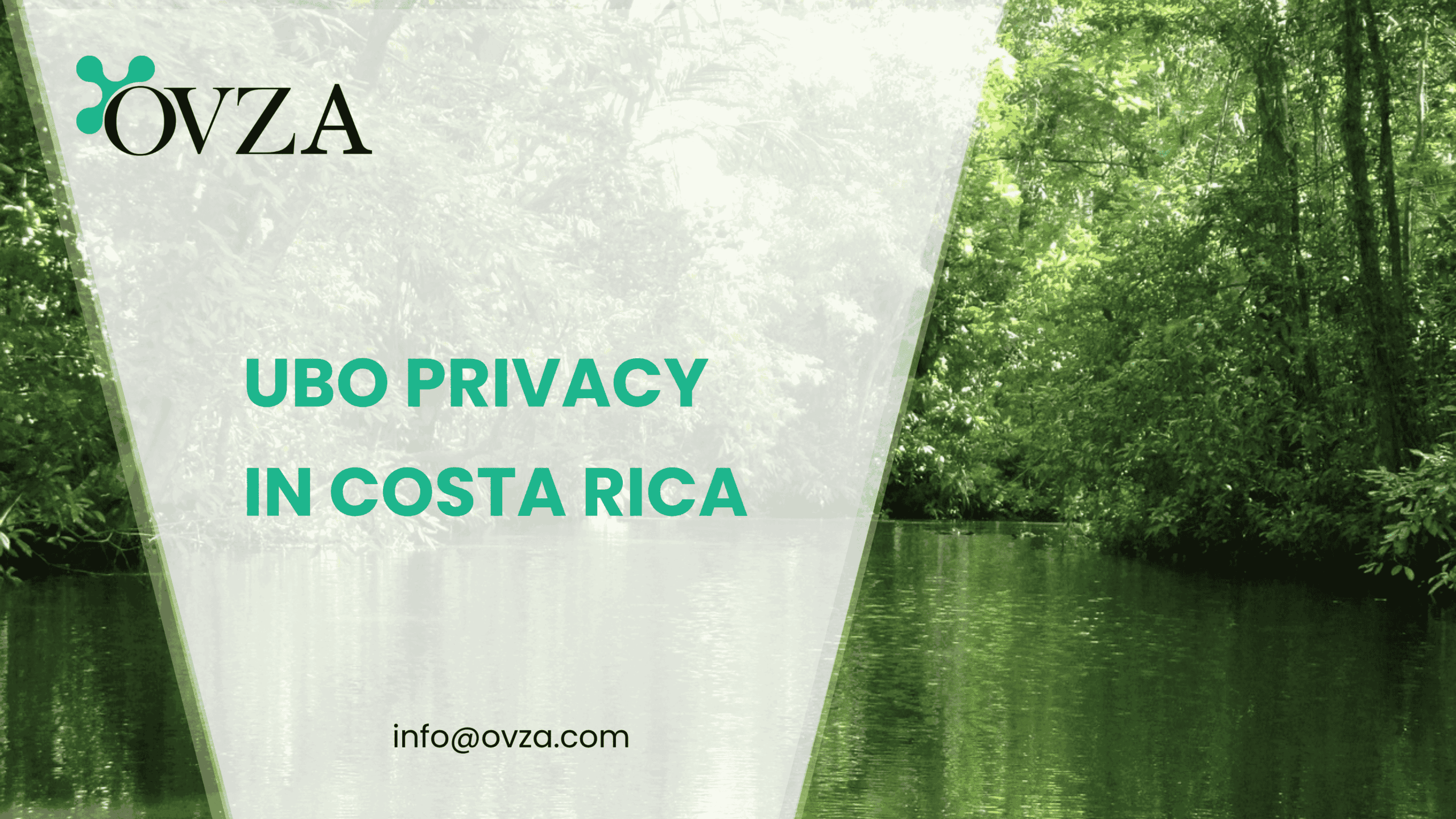Panama offshore companies benefit from foreign income tax exemption under territorial taxation and strong international compliance frameworks. Panama continues to be one of the most strategically significant jurisdictions for offshore structuring, primarily due to its territorial tax regime, robust corporate confidentiality framework, and long-standing legal infrastructure supporting international business entities. The tax benefits of Panama offshore companies are not derived from tax exemptions granted by special status, but from the principle that only income sourced within Panama is subject to taxation. This foundational element of Panamanian tax law is one of the key features distinguishing it from other offshore jurisdictions and provides considerable legal certainty for international business operations.
As the global regulatory environment has shifted under initiatives such as the OECD’s Common Reporting Standard (CRS) and the U.S. Foreign Account Tax Compliance Act (FATCA), Panama has adapted its legislative frameworks to maintain compliance without compromising its core offshore advantages. These adaptations include the introduction of beneficial ownership transparency mechanisms, accounting requirements for international business companies, and active cooperation in automatic exchange of financial information.
Territorial Taxation as the Basis of Offshore Exemption in Panama
The tax neutrality of Panama offshore companies is grounded in the country’s application of a territorial tax system, codified in the Panama Tax Code. Under this model, only income derived from Panamanian sources is taxable in Panama. Income generated outside Panamanian territory—regardless of the location of the company’s registration or the nationality of its shareholders—is not subject to local taxation. This distinguishes Panama from jurisdictions that require specific international business company (IBC) legislation to exempt foreign-source income, as seen in Belize under the International Business Companies Act, or the British Virgin Islands under the BVI Business Companies Act.
A Panamanian sociedad anónima (S.A.), the most commonly used offshore structure, is governed by Law 32 of 1927, which allows for non-resident ownership, non-resident directors, and business operations conducted entirely outside of Panama. When an offshore company in Panama limits its operations to international trading, investment holding, consulting services, or asset management without engaging in domestic business, its income remains legally exempt from Panamanian taxation.
This interpretation has been confirmed through administrative practice and judicial decisions, further reinforcing the legal certainty of the territorial tax model. The Dirección General de Ingresos (DGI), Panama’s tax authority, has consistently maintained that foreign-source income, including dividends from foreign subsidiaries, interest from overseas accounts, or profits from cross-border services, is not taxable if the activity is conducted entirely outside the national territory.
Unlike jurisdictions that operate under a hybrid system—offering tax exemptions through specific licensing regimes or sector-based exclusions—Panama’s model applies categorically to all entities. This uniformity enhances predictability in tax planning and limits the risk of regulatory reclassification. For example, the Cayman Islands relies on tax-exempt status granted through registration under the Exempted Companies regime, while Seychelles historically offered exemption through its IBC framework, which has since been modified following pressure from the OECD and the EU.
It is also important to note that Panama imposes no withholding tax, capital gains tax, or dividend tax on income derived from foreign sources. This blanket exemption significantly enhances the tax efficiency of Panama offshore companies engaged in passive holding structures, intellectual property licensing, and cross-border investment operations. The resulting legal and tax framework provides not only exemption from income tax but also relief from reporting obligations related to foreign income, provided the entity is not conducting taxable activities within Panama.
Panama’s system does not rely on preferential tax treatment or ring-fencing of certain corporate vehicles. Instead, its territorial model is applied uniformly across both resident and non-resident companies, which has allowed the jurisdiction to maintain its standing within international tax standards while preserving the fundamental tax advantages sought in offshore planning.
Offshore Applications of Panama’s Territorial Tax Model
The practical advantages of Panama’s territorial tax regime are best understood through its application to various offshore business models, particularly in the context of international trade, asset holding, and corporate structuring. Unlike regimes that impose minimal substance requirements or sector-specific exemptions, Panama’s tax neutrality extends to all non-Panamanian source income, allowing diverse business types to benefit without statutory segmentation.
One of the most common applications of the Panama offshore company is in the establishment of international holding structures. A sociedad anónima (S.A.) may hold shares in foreign subsidiaries, real estate outside Panama, or intellectual property rights, without incurring Panamanian tax on dividends, capital gains, or royalty income. For companies incorporated in other jurisdictions served by global incorporation networks—such as Saint Kitts and Nevis, Belize, or the Bahamas—a Panama holding entity may be used as a parent structure in cross-border mergers or layered trust arrangements due to its favorable tax treatment and enforceable corporate governance laws.
Panama also offers significant advantages for companies involved in international services, such as consulting, digital platform operations, or licensing. Provided these services are performed entirely outside Panama and not invoiced from a local office, income derived from such activities is not treated as Panamanian source. This position has been reaffirmed by tax administrative rulings and is supported by the absence of sourcing rules that would attribute income to Panama merely due to company incorporation. As a result, professional service providers operating from jurisdictions such as the UAE, Singapore, or the United Kingdom may use a Panamanian offshore company to centralize international contracts without triggering Panamanian taxation.
Another key structure involves Panama offshore companies functioning as asset protection vehicles. These entities may hold bank accounts, investment portfolios, or intellectual property in low-tax jurisdictions or financial centers such as Switzerland, Liechtenstein, or Luxembourg. The absence of foreign income taxation, combined with legal protections under Panama’s Private Interest Foundation Law (Law No. 25 of 1995), allows for integration with trusts, family offices, and foundations, particularly in estate planning strategies for high-net-worth individuals.
Where Panama diverges from other jurisdictions is in its neutral treatment of offshore companies regardless of ownership structure. Whether owned by individual residents of Canada, the United States, or Mexico—or by entities incorporated in jurisdictions like Anguilla, Mauritius, or the British Virgin Islands—the Panama company is taxed solely based on source of income, not control or residence. This global neutrality allows for flexibility in multi-jurisdictional structuring while minimizing exposure to local tax reporting.
Unlike Belize, which now requires economic substance for certain business activities under its Economic Substance Act, Panama imposes no such requirements for companies that do not earn local-source income. Similarly, whereas jurisdictions like the Cayman Islands have introduced substance-based criteria for intellectual property and headquarters businesses under their International Tax Co-operation (Economic Substance) Act, Panama companies may conduct similar activities from abroad without triggering regulatory scrutiny under domestic law.
For companies involved in e-commerce or international logistics—particularly those operating out of Latin America or servicing regional markets—Panama’s Free Trade Zones (such as the Colón Free Zone) offer additional structuring possibilities. However, companies that do not physically operate in Panama are not subject to local licensing, sectoral taxes, or audit obligations, preserving the simplicity of a classic offshore structure.
Panama’s continued recognition of bearer shares, albeit immobilized under Law 47 of 2013 and its amendments, further enhances privacy without compromising international transparency requirements. Shareholders may hold their interests through custodians, maintaining a level of confidentiality while the jurisdiction remains compliant with CRS and FATCA.
Compliance, Transparency, and Global Comparisons
Panama’s ability to maintain tax neutrality for offshore companies while integrating international transparency standards is a core reason for its continued use in cross-border structuring. Unlike jurisdictions that offer tax advantages at the cost of isolation from global frameworks, Panama participates actively in international compliance initiatives such as the OECD’s Common Reporting Standard (CRS) and the U.S. Foreign Account Tax Compliance Act (FATCA). These obligations primarily affect financial institutions, which are required to identify and report non-resident account holders. Offshore companies not engaged in banking or custodial services remain outside the scope of direct reporting, although beneficial ownership and legal identity transparency are increasingly important.
Under Law 129 of 2020, Panama established a centralized Beneficial Ownership Registry, accessible only to competent authorities. Registered agents are required to collect and maintain updated information on ultimate beneficial owners. This development aligns Panama with other compliant jurisdictions such as Barbados and Mauritius, which have adopted similar registries as part of their anti-money laundering frameworks.
From a tax compliance perspective, Panama offshore companies are not obligated to file annual tax returns or financial statements, provided they do not derive income from Panamanian sources. However, recent amendments to the Commercial Code and regulations issued by the Dirección General de Ingresos require all legal entities to maintain accounting records and retain supporting documentation. This requirement does not alter the tax-exempt status of foreign-source income but reflects Panama’s commitment to ensuring transparency in legal corporate operations. It also brings Panama in line with obligations under the OECD’s Base Erosion and Profit Shifting (BEPS) framework and FATF recommendations.
Compared to other jurisdictions, Panama’s model offers a distinctive combination of broad tax exemption for foreign income and institutional integration with international tax cooperation frameworks. In the British Virgin Islands, for example, the absence of income tax on IBCs is paired with robust compliance under the BVI Financial Account Reporting System, but the jurisdiction has increasingly imposed reporting obligations under economic substance legislation. Similarly, Seychelles now requires certain IBCs to comply with accounting and substance rules as part of its commitment to the EU Code of Conduct Group.
Jurisdictions like Nevis and Saint Lucia maintain corporate privacy and tax efficiency, but face challenges in maintaining reputational neutrality due to limited transparency mechanisms. Panama, by contrast, has actively sought to remain in good standing with international regulatory bodies while preserving the foundational principle of taxing only local-source income. This balancing act has allowed it to avoid placement on most major blacklists and sustain its status as a legitimate and functional offshore financial center.
Panama’s continued appeal also lies in its multi-purpose infrastructure. Offshore companies may coexist with private interest foundations, free zone entities, and re-domiciled foreign companies under a unified legal system that accommodates modern financial structuring. As jurisdictions like the Cayman Islands and the UAE adapt to global standards through increased oversight and reporting, Panama’s early implementation of compliance laws—without altering its territorial tax model—places it in a comparatively stable position.
Conclusion
Panama offshore companies derive their tax benefits from a clear and longstanding territorial taxation system, not from preferential regimes or artificial exemptions. This legal foundation allows international companies to structure cross-border operations, asset holdings, and professional services without incurring Panamanian tax on foreign income. Panama’s alignment with international standards such as CRS and FATCA, combined with its institutional commitment to corporate transparency, reinforces the legitimacy of its offshore regime. In contrast to jurisdictions that rely on narrow exemptions or sector-based incentives, Panama offers a comprehensive legal and tax framework that supports compliant, tax-efficient offshore structuring across a wide range of international applications.
Disclaimer: The information provided on this website is intended for general reference and educational purposes only. While OVZA makes every effort to ensure accuracy and timeliness, the content should not be considered legal, financial, or tax advice.









